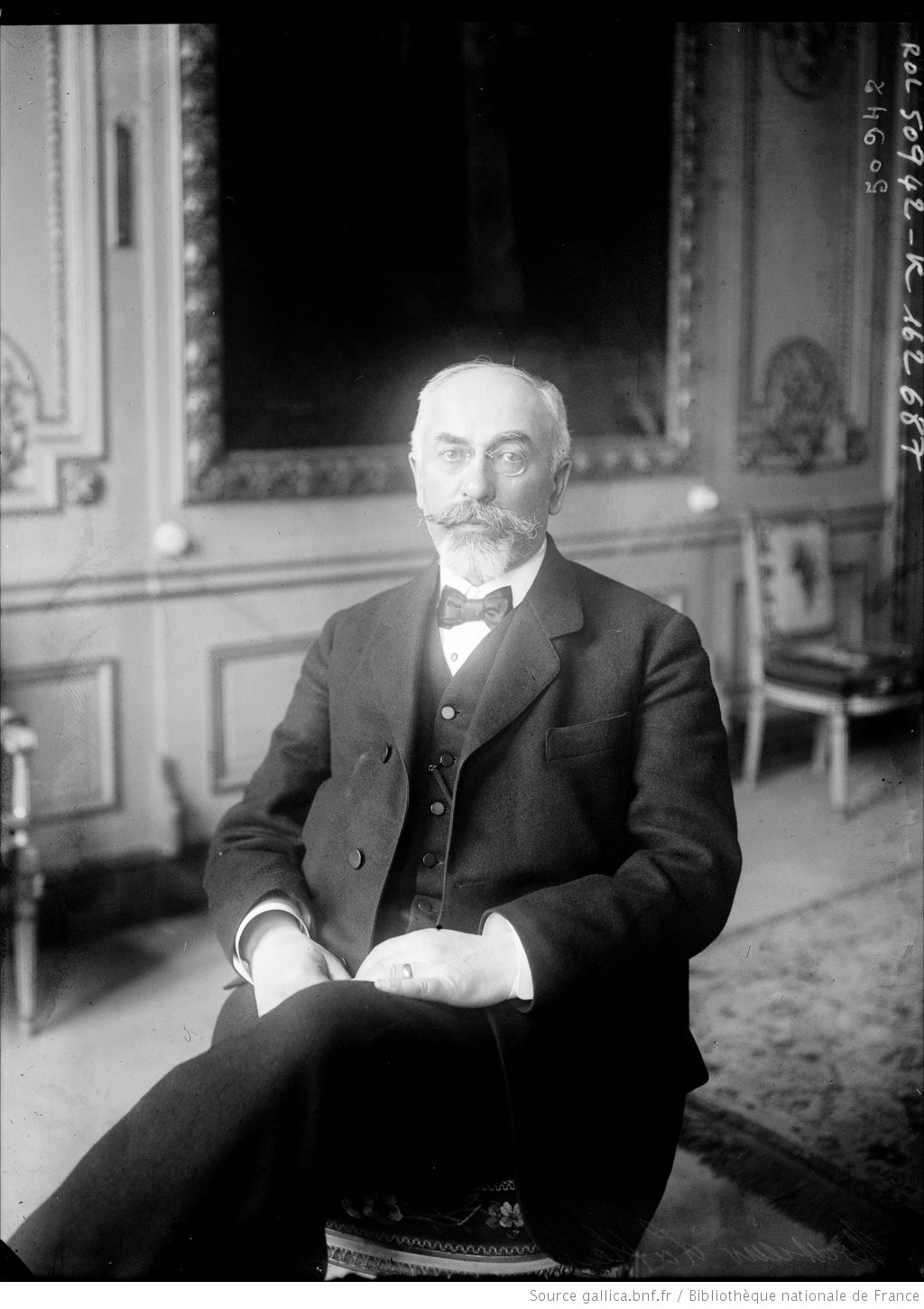Paris-Manchester 1918
Conservatoires in time of war
Extract from the address by the Minister of Public Instruction and the Arts, 1919
In keeping with other official speeches at the end of the war, this address by the Minister of Public Instruction and the Arts seeks to represent the war as a necessary evil, a tragic but nonetheless glorious experience. A member of the Radical Party and a close associate of Clemenceau, Louis Lafferre (1861-1929) offers here a kind of assessment of four years of war for the Conservatoire. Rather than lament and honour the dead, the choice of vocabulary (“glory”, “greatest tribute of all”, “immense and noble sacrifice” etc.) is intended to draw attention to the living: according to the minister, the glory of the dead in no way outdoes the heroism of the living. The image of the student waiting until the lesson ends, in the midst of bombardment, places those who did not go to the front on an equal footing with the soldiers. The government is seeking to use the Conservatoire, as an institution of the French Republic, to restore the unity of the nation.
Translation
Ladies and Gentlemen,
My dear friends,
On this day, it is natural to take a look back at the whole course of our long struggle; with justifiable pride and profound admiration, I note that this school remained open without a break from 1914 until the very end of the war.
The declaration of war came during the summer vacation. Many teachers cut short their holidays so as to be there to support the school administration. In fact, all that was requested of them was that they restart classes as normal in October 1914. The entrance examinations for the new school year were somewhat delayed, but nonetheless about two-thirds of the usual number of candidates were present. In 1915, there were no competitions for male students; after that however, everything continued more or less as normal until the end of the war. All those who remained here had their work to do, as they waited for their seniors, who had left for the front, to return to the places that had been kept open for them.
Unfortunately, many did not return: we mourned the loss of 78 Conservatoire students and graduates.[1] Let us solemnly pay them the greatest tribute of all by remembering their immense and noble sacrifice. Glory be to those who fell on the field of honour to save our country. At the same time let us salute the 190 heroes who survived and avenged the fallen, and who have been rewarded for their bravery with glowing citations and well-deserved decorations. May they continue to serve as an example to our youth, who admire them and dream of following their example. Glory be to this school so dear to us all! During the entire period of the crisis, by the sides of their venerable director – this eminent artist whose assistants and followers they were proud to be – and their dear and devoted teachers, all “held fast”, and all kept a sublime hope in their hearts: not one teacher or student ever faltered for a moment. Our young people were there on those days when shells rained down, and they would wait, heedless of danger, until the end of the lessons that their teachers had bravely started. In days of peril, without needing encouragement or praise, all simply – and nobly – carried out their tasks. Allow me, gentlemen, and you, my young friends, on this day of celebration, made all the sweeter by our victory, to thank you from the bottom of my heart and offer you well-deserved congratulations. [. . .]
[1]Recent research has identified 107 students and graduates of the Conservatoire who were killed in action.
Source
Louis Lafferre (1919) Address for the Prize-Giving Ceremony at the Conservatoire, Paris, 12 July 1919, reproduced in Anne Bongrain (2012) Le Conservatoire national de musique et de déclamation 1900-1930. Documents historiques et administratifs, Paris: Vrin, p. 637-638.
Bibliographie
Audoin-Rouzeau, Stéphane, and Prochasson, Christophe (2008) Sortir de la Grande Guerre. Le monde et l’après-1918, Paris: Tallandier.
Becker, Annette (1994) La guerre et la foi, de la mort à la mémoire. 1914-1930, Paris: Armand Colin.
Bongrain, Anne (2012) Le Conservatoire national de musique et de déclamation 1900-1930. Documents historiques et administratifs, Paris: Vrin.
Demiaux, Victor (2013) La construction rituelle de la victoire dans les capitales européennes après la Grande Guerre (Bruxelles, Bucarest, Londres, Paris, Rome), doctoral thesis, Paris: EHESS.
Tison, Stéphane(2011) Comment sortir de la guerre ? Deuil, mémoire et traumatisme (1870-1940), Rennes: Presses universitaires de Rennes.




